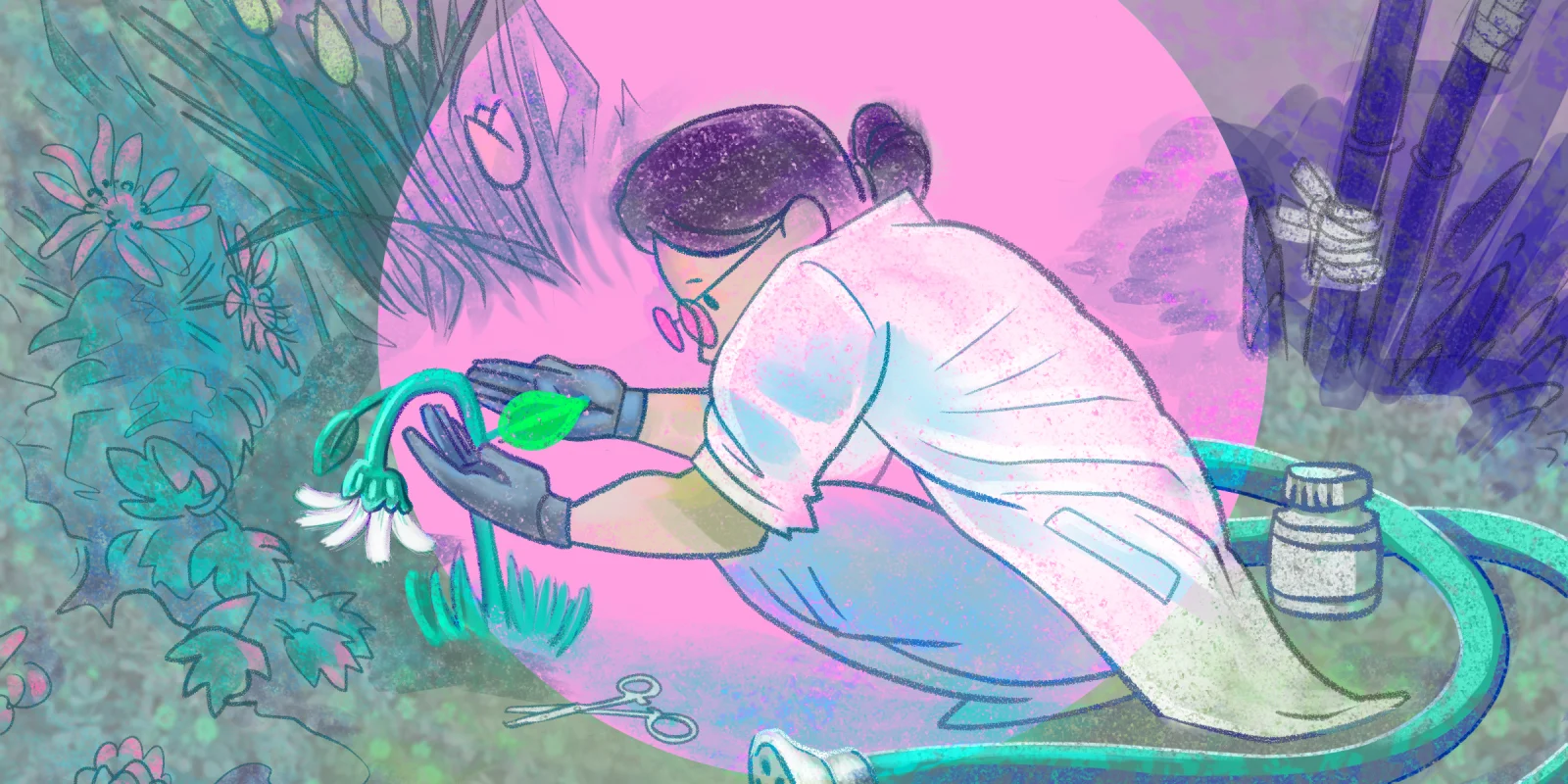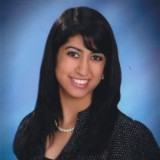 In neurology, we all crave to “localize the lesion,” taking pride in our well-refined and meticulous physical examination skills – an aspect of my identity that was temporarily stolen from me in the era of COVID-19.
In neurology, we all crave to “localize the lesion,” taking pride in our well-refined and meticulous physical examination skills – an aspect of my identity that was temporarily stolen from me in the era of COVID-19.
As I walked into the hospital that day, I felt bare without the typical hammer, tuning fork, and ophthalmoscope weighing down my white coat. I was welcomed by an infrared thermometer check and my smile replaced with a surgical mask. I took my stethoscope out of its retirement, dusted it off, and braced myself for what was yet to come: I never thought that the last few months of my residency would look like this.
In Detroit, one of America’s hotspots, COVID-19 viciously attacked our community, transforming it into a war-zone. Nearly overnight, our neurology unit was converted into a COVID-19 unit, with us residents being redeployed. Here, it didn’t matter what your specialty was – you were a COVID-19 doctor now.
Before we could fully understand the repercussions, we were engulfed by an invisibly mysterious colossal monster which completely revolutionized the way we practice medicine. Like many of my co-residents, when I realized I would be practicing medicine for COVID-19 patients, I went through the stages of grief as my panic progressed into a strange calmness: I would have to develop a skillset in real time. Protocols for management and clinical trials for treatment were in place, only to transform on an hourly basis. The pandemic was evolving and so were we.
In certain aspects, learning medicine in the hospital which has become my home for the last four years felt foreign for the first time. The goal was minimizing patient contact, where we often resorted to calling patients multiple times a day on their hospital phones to take subjective histories and understand their complaints in the interim. We made relationships behind closed walls: updating them about their lab work and condition while learning about their careers, their goals, and their ambitions. I even taught patients how to check their own pulse ox! More than once, the patient would ask me how I was doing amidst the chaos – a gesture that made me swallow my tears. COVID-19 brought out a different kind of humanity; in some ways, I felt more connected to my patients than ever before.
Despite it all, our team worked like a well-oiled machine. We covered for each other while we saw our co-residents and attendings get tested, recover, and come back to work with their relentless work ethic. Fear was an unspoken sentiment between us: the stress-levels of the unknown and exposure both to ourselves and our loved ones ran high. What our hidden smiles couldn’t express, our tone and cadence conveyed. We went above and beyond for each other.
We all started to gain confidence. After all, this land wasn’t so foreign to us after all. As neurologists, we loved puzzles! We “localized” the disease: understanding its diverse manifestations and refined our auscultation skills. We learned the proper way to don and doff PPEs, the importance of proning patients and interpretation of CT chests.
On any other instance, the neurologist in me would ask patients to say: “today is a bright and sunny day” to test their repetition and comprehension. That became my mantra. Before I hung up the phone with any patient, I would ask all my patients to repeat it – even when it wasn’t bright or sunny. It was a change in perspective: a stark reality-check that in that moment, we were all okay.
Like my co-residents, I grieve for the loss. The loss of lives. The loss of memories. The loss of missed graduations (including mine) and the displacement of health care workers (including me) from their families. But I’ve also gained more than I could ever ask for: I’ve gained an appreciation for life, my health, my co-residents and attendings, our nursing and support staff. I could not be more proud of the community of health care that I’m part of.
And I’m a better neurologist for it.
No matter what the pandemic brings – repeat after me: today is a bright and sunny day.
Illustration by April Brust
Click here to see more perspectives on COVID-19 from the Doximity network.
Click here for up-to-date news about COVID-19 on Doximity.







